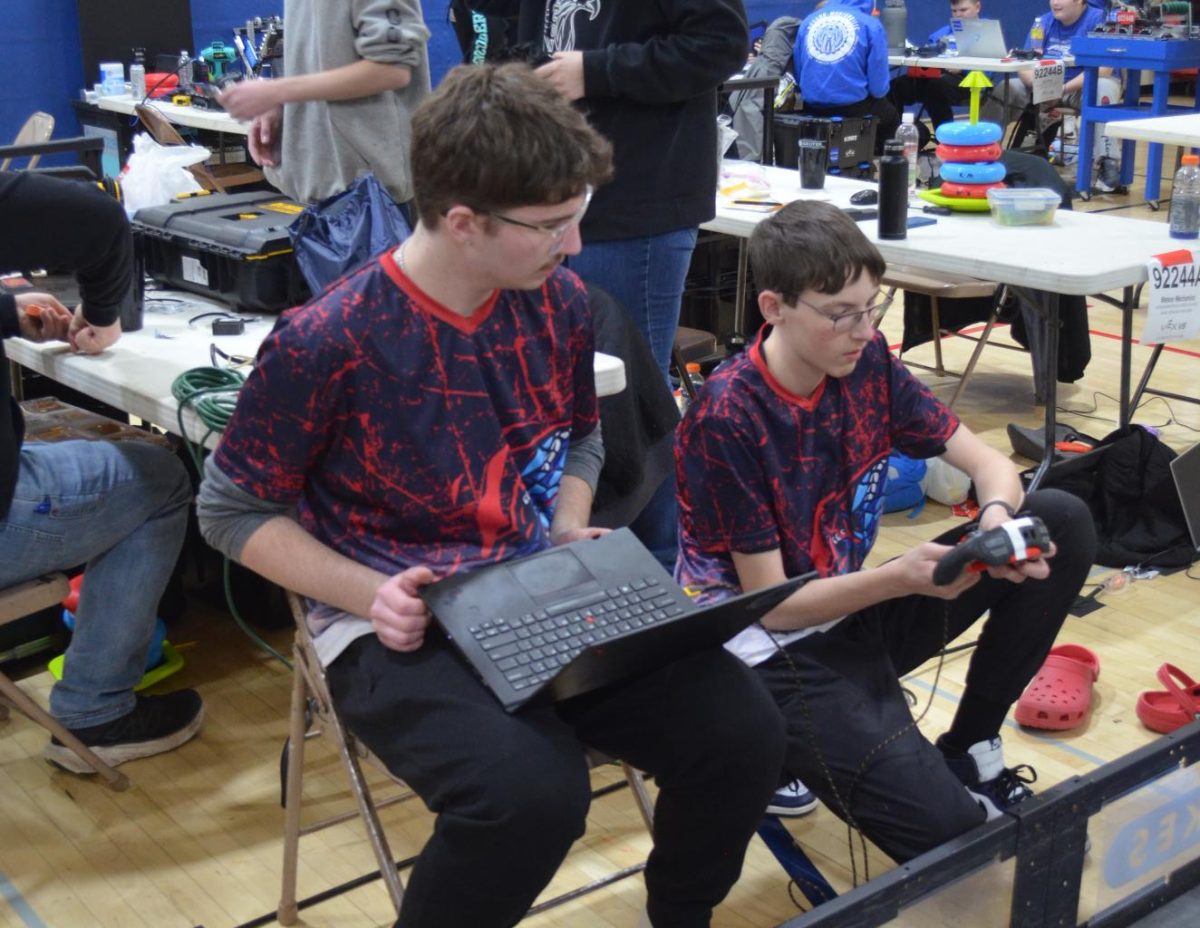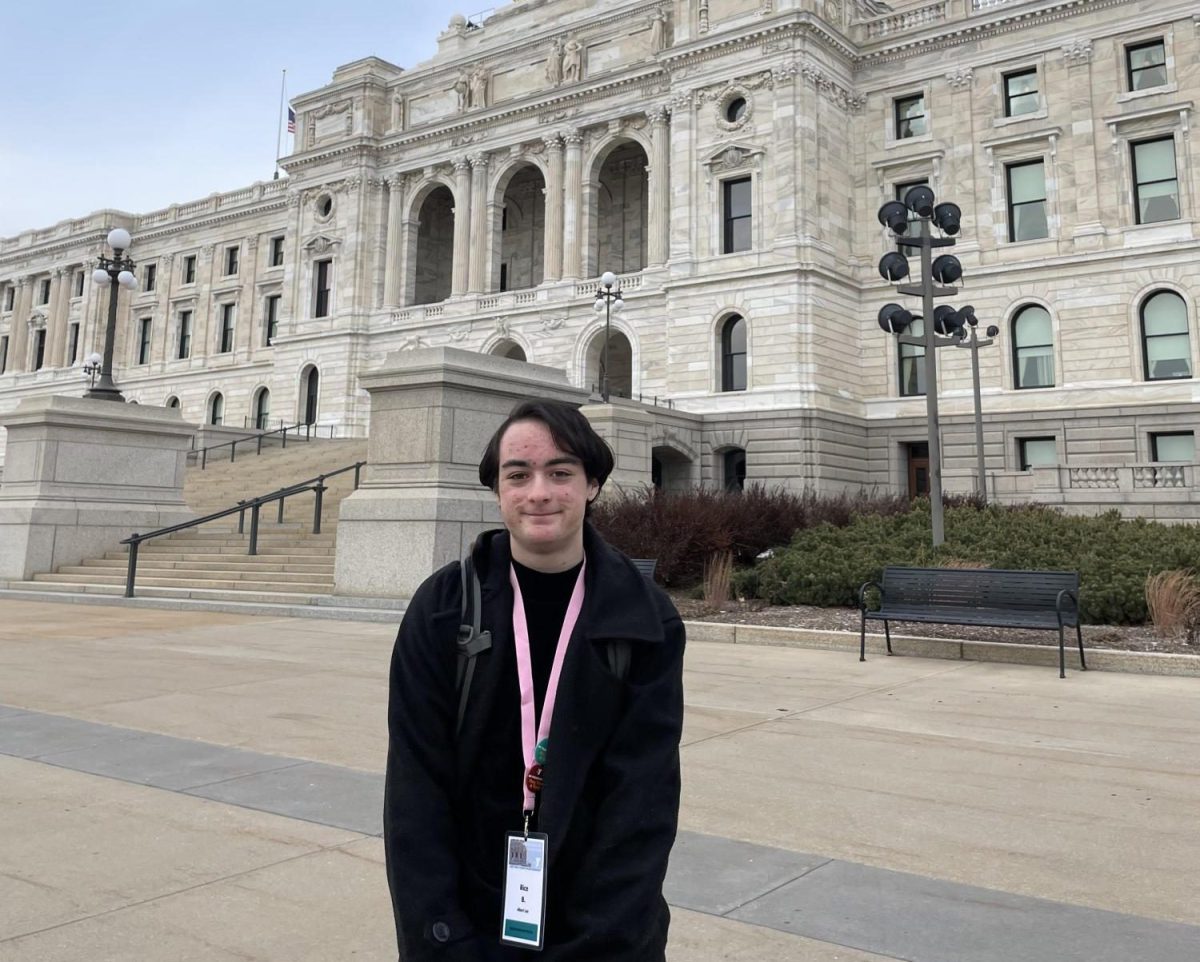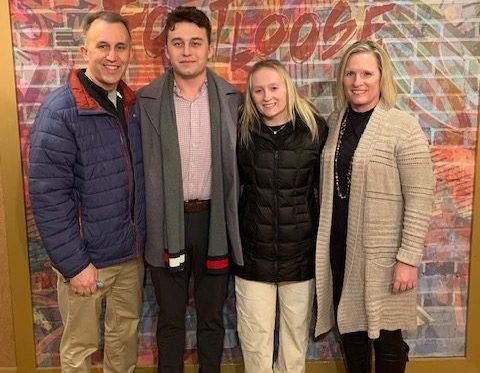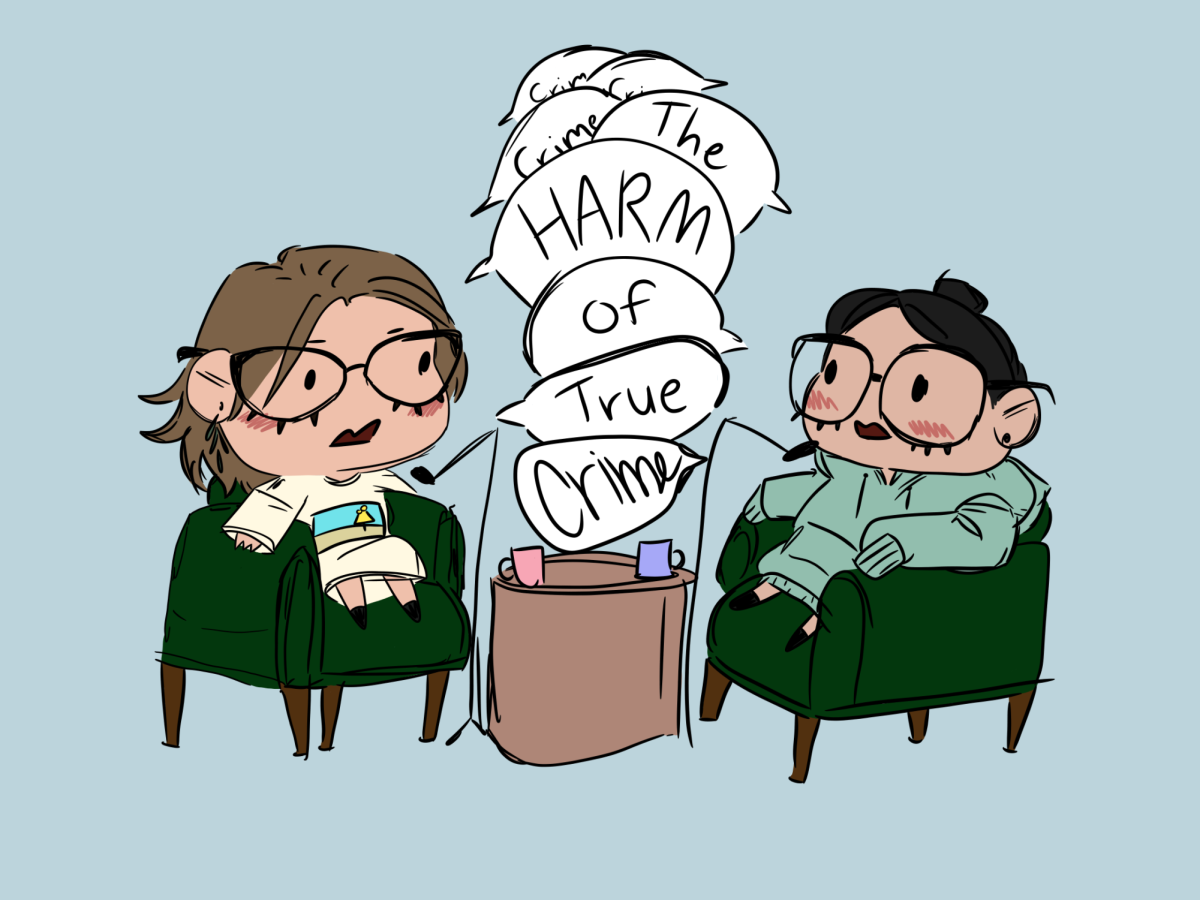Chasing the Dream
The Ahlahasa prefers to have sources “on the record” but occasionally for a story to be told the source remains anonymous. Rather than leave important stories unreported, the Ahlahasa staff works diligently to verify the credibility and reliability of the story. This includes deciding whether the source is justified in their desire to remain anonymous. The following story is from an Albert Lea High School student who is registered as a DACA recipient. Their personal story is italicized while our reporters researched the history and present situation of the DREAM act.
El que quiera azul celeste que le cueste.”
It is a common saying in Latin America, meaning ‘whoever wants light blue must earn it’. This saying refers to the rock lapis lazuli, which is difficult to obtain since it can only be found in the eastern part of the world. All the obstacles that people overcome to obtain the rock increases its value, therefore all those who obtains it would never sell it.
Our obstacles determine who we become. Those who have struggled to find the light blue stone know its value. My parents are immigrants who would cross the desert all over again to see me graduate from Albert Lea High School and achieve my dreams. The American Dream was, and still is, that precious jewel for millions of immigrants.
The Dream Act – Development, Relief, Education, for Alien Minors- was written in 2001 when Tereza Lee, a talented pianist, was accepted to a prestigious music school but her immigrant status prevented her from attending. According to the Illegal Immigration Reform and Immigrant Responsibility Act she would have to leave the country for ten years before she could apply for re-entry. The DREAM Act, was proposed to provide alien minors with conditional residency and eventually permanent residency upon meeting specific qualifications.
My parent’s story is part of my history, the reason I am here today; they taught me their version of being a fighter. Around June 1999, my father left our native town, Orizaba Mexico, in search of a better future for me and my mother. If he would have stayed, we would be living in a small shack with a dirt floor, metal sheets for a roof and a pit for a stove. Not to mention the economic instability and drug cartels battling for territory causing increasing homicides. Orizaba now ranks the second highest place for homicides in the country, with a 123 percent increase in 2016. My birthplace is a treacherous place.
The DREAM Act was introduced to Congress by Senator Richard J. Durbin, a Democrat from Illinois. 16 years ago in 2001. It has been introduced several times since then each time failing to pass either the House of Representatives or the Senate. After 12 years of congressional debate that left undocumented children without legal protection. President Barack Obama signed the Executive Order, Deferred Action for Childhood Arrivals (DACA), on June 15, 2012.
Two years after my father left, my mother and I were to go to him. I was two and pretend to be another family’s child. A two year old can’t pretend though and as the story goes I cried the whole journey. More than 2,000 miles in two days. My mother was taken through a longer route. I was with my father as she was arriving in California. She had no news of me or my whereabouts the entire journey until about 12 hours after she arrived in California. She was on her way to Minnesota when she received a message saying, “Your daughter is safely in the arms of her father.” A day after, the three of us were finally reunited. For 16 years, we have lived in fear. Fear of losing each other. Fear of losing the dreams we had worked so hard for.
A DACA applicant must meet certain qualifications. They must be under 31 years of age as of June of 2012. They must have arrived in the United States before the age of sixteen, be currently enrolled in school and have clean criminal record. They also can’t leave the country from the time of their arrival. According to U.S. Citizenship and Immigration Services, since 2012 there has been 1,889,311 DACA requests and 1,771,475 of those were approved. The U.S. Citizenship and Immigration services reported the majority of DACA application come from Mexico followed by El Salvador, and Guatemala.
When I started school, I did not know the language. I would sometimes mix up my words up and be ridiculed; making friends was very challenging especially because I couldn’t understand what they were saying. I wasn’t much of a success in school either; a simple assignment turned into rocket science. The amount of help I received from my parents was limited as they were only able to finish middle school. I was in the English Language Learners program in elementary school but I was taken out of it at about third grade. I was very upset because that was the only place I didn’t feel like a total outcast. With all my regular classes I never really asked for help from teachers let alone my parents. From a young age I knew and understood my situation. I grew up faster than most kids. I didn’t like to ask for help because I was afraid if someone knew too much my whole world would come crashing down. At first it was out of fear then it was out of pride. I had gotten this far with no help then I could continue to do so. I worked harder than most kids my whole school career. What would take some half an hour to complete took me sometimes twice that. Every day after school I would dedicate myself to my school work. 13 years of that pays off. I ended my junior year above a 4.0 and I will hopefully be graduating with 33 college credits. I achieved all of that on my own.
There are benefits that DACA brings to the United States. In a survey by the Center for American Progress, 97 percent of DACA recipients attend school or are employed. Their income increases tax revenue which improves the economy overall. Loss of DACA workers would reduce U.S. gross domestic product by $433 billion in the next ten years. According to Immigrant Legal Resource Center if the Dream Act ended 645,145 DACA recipients would be unemployed. $3.4 billion unnecessary costs for business and employers and $26.4 billion reduction to Social Security and Medicare over the next decade. Immigration was one of the issues both candidates focused on in the 2016 Presidential campaigns.
Racial tensions intensified and I began to hate where I came from;it made me hate all the things that made me unique. I wanted lighter hair, lighter skin. A different past and a secure future. I shed frustrated tears but my parents had gone through cruel times for me. It was time for me to persevere and do the same.
I am no longer afraid.
I am determined.
My mother and father walked through the desert, so I could walk the stage at graduation. It will make all the struggles that we have gone through worthwhile. So many people take what they have for granted; graduating was something they knew would happen. For me, I never knew for certain if I would get to that point. Graduating will be me presenting my parents with their lapis lazuli.
On Sept. 5, 2017 the program DACA was rescinded. They stopped accepting new applicants and as of Oct. 5 there are no renewals. Sept. 5 was the deadline of the nine state attorneys who threatened to bring legal action against the White House because they believed DACA was unconstitutional. Those states included Alabama, Arkansas, Idaho, Kansas, Louisiana, Nebraska, South Carolina, Texas and West Virginia. Nearly 800,000 adolescents are at risk of deportation if Congress doesn’t pass legislation for the first time in 16 years. They have six months before protections will start disappearing.
In response 19 states, including Minnesota, and the District of Columbia have filed a suit claiming: “The consequence of the President’s animus-driven decision is that approximately 800,000 persons who have availed themselves of the program will ultimately lose its protections, and will be exposed to removal when their authorizations expire and they cannot seek renewal. The individuals who have relied on DACA are now more vulnerable to removal than before the program was initiated, as they turned over sensitive information to the federal government in their applications. Despite the federal government’s repeated promises that it would not use such information to conduct enforcement measures, the Memorandum does not explain how the government will keep that information secure, nor does it provide any assurances that immigration enforcement agents will not use such information to find and remove those who applied for DACA.”
It continues: “Rescinding DACA will cause harm to hundreds of thousands of the States’ residents, injure State-run colleges and universities, upset the States’ workplaces, damage the States’ economies, hurt State-based companies, and disrupt the States’ statutory and regulatory interests.”
The suit was filed on Sept. 6, the day after General Attorney Jeff Sessions made the announcement to eliminate DACA.
My parents sat me down on Sept. 5, thinking I didn’t know what had happened, but I knew. I told them just as they fought to get me here, it was now my turn to go even further, with or without the protection of the government.
My dreams aren’t illegal.
I was handed the American Dream and then it was taken just like that. Nothing and no one is going to stop me from achieving them. I have hope that someday soon Congress will finally make a decision and that one day my story will open the eyes of those with stereotypes in their minds.
All the pain, anguish, and fear my parents experienced and still experience today won’t be for nothing. It was their journey to find that beloved light blue rock that shaped who I am today.
“El que quiera azul celeste que le cueste.”


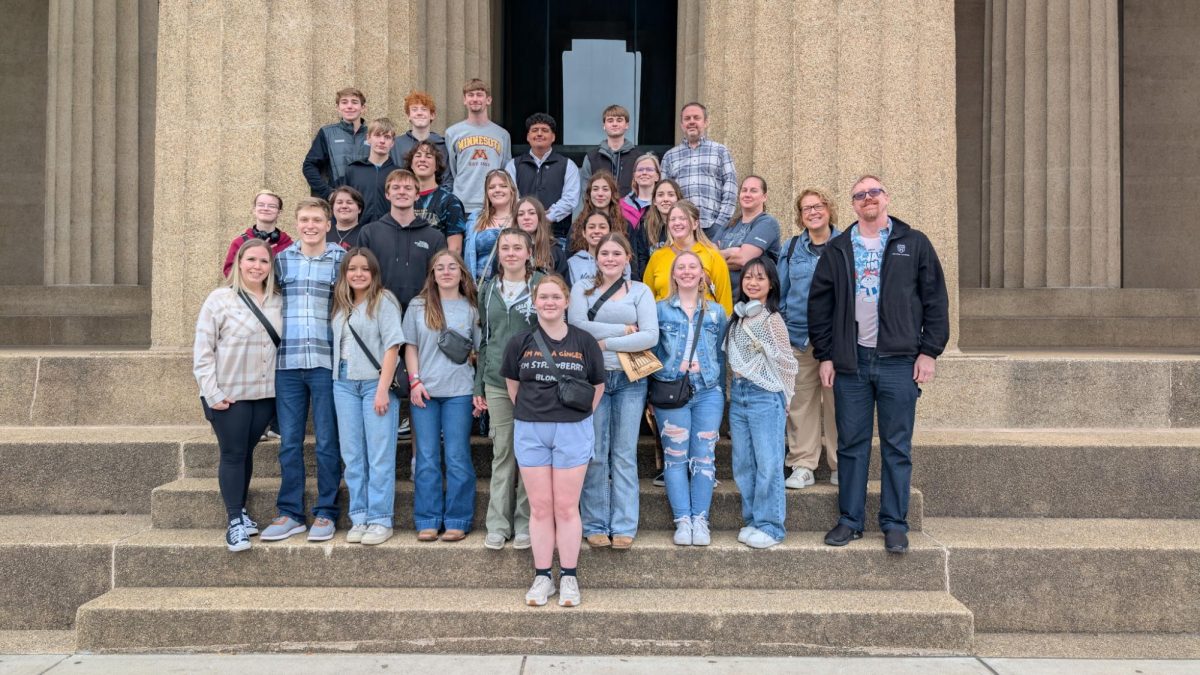

![At the pepfest on Feb. 13 the Winterfest Royalty nominees were introduced. There were two girls and two boys candidates from each grade. Royalty included Prince Axel Calderon (11), Jacob Miller (12), Princess Maya Fuller (11), Brecken Wacholz (10), Ethan Brownlee (9), Lord Given Saw (9), Lilly Elmer (9), Angela Buansombat (10), Queen Jenna Balfe (12), Hanna Austinson (11), Raegan Broskoff (8), Duchess Evalyn Holcomb (10), Jordyn Earl (8), and Lady Leighton Brenegan (9). Not pictured include: King Kaiden Baldwin-Rutherford (12), Piper Aanes (12), Blair Blake (11), Duke Kuol Duol (10), Thoo Kah (8) and Aidric Calderon (8). Student council member and Junior Prince Axel Calderon said, “It [the nomination] means that I’m kind of a student leader. I hopefully show younger kids what it means to be a part of the student council and lead the school.”](https://www.ahlahasa.com/wp-content/uploads/2025/03/front-page-1200x800.jpeg)



